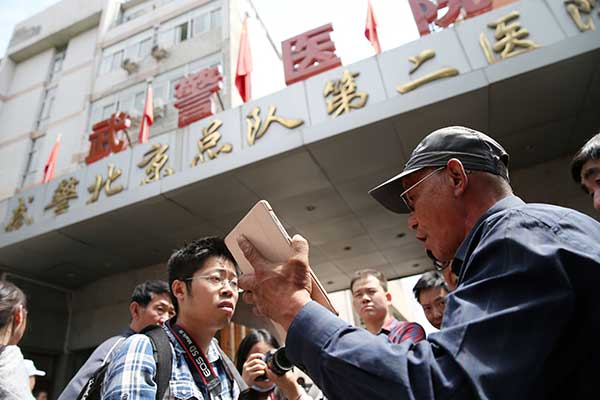Hospital, search engine must change after patient's death
 |
|
The Second Hospital of the Beijing Armed Police Corps was found to have illegally subcontracted medical services to private businesses.[Photo by Wang Zhuangfei/Asianewsphoto] |
Departments and ministries under the State Council, China's Cabinet, have responded to a wide range of public concerns during the past week in areas that include misleading online advertising and scams, violence against doctors and overcharging.
The responses included action by regulators against the country's leading search engine, Baidu, which is a Nasdaq-listed company, and against a hospital in Beijing.
Both were involved in a high-profile case in which Wei Zexi, a 21-year-old college student from Shaanxi province, died from a rare soft-tissue cancer last month after spending more than 200,000 yuan ($31,000) on treatment that was later believed to be ineffective. Wei went for the treatment at the Second Hospital of the Beijing Armed Police Corps after finding out about it and believing it to be recommended when he carried out online research using Baidu.
On Monday, the Cyberspace Administration of China ruled that Baidu had profoundly depended on profits from paid listings in its search results and that it did not make clear to internet users that the listings had been heavily affected by commercial promotions.
Meanwhile a joint probe by the National Health and Family Planning Commission and two military organs found that the Second Hospital of the Beijing Armed Police Corps was also in error for publicizing false information that had misled patients and the public. The hospital was also found to have illegally subcontracted medical services to private businesses. Baidu and the hospital have been ordered to immediately overhaul their operations to rectify the situation.
















